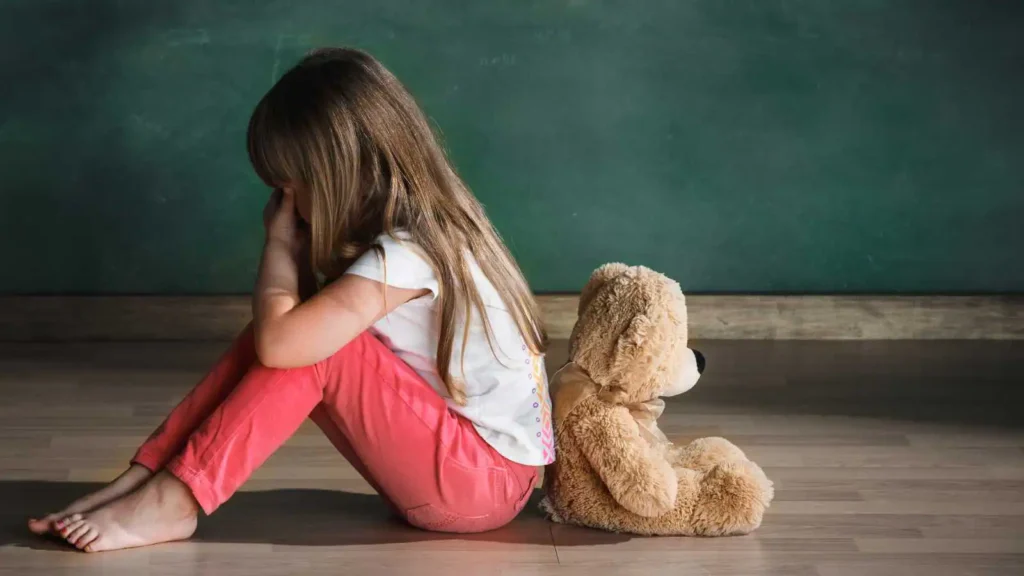Children Mental Health
Children’s well-being depends on their mental health. It provides the groundwork for sound cognitive, emotional, and social development and equips children to deal with the ups and downs of life. Children who are in good mental health are better able to build strong relationships, excel academically, and manage stress in constructive ways.
Furthermore, fostering mental wellness early in life lowers the likelihood of mental health illnesses later in life, thereby encouraging emotional stability and fulfillment throughout one’s lifespan. In the end, putting children’s mental health first is essential for both their personal achievement and happiness as well as for creating a society that is healthier and more compassionate.
Why we need to talk on children mental health?
It’s important to discuss children’s mental health for a number of reasons, each based on unique requirements and causes:
Awareness and education:
It’s possible that many people are unaware of the significance of mental health in young people, including parents, caregivers, educators, and even children themselves. Open talks inform stakeholders about the variables that affect children’s mental health and assist increase awareness of its importance.
Early identification and intervention: Undiagnosed or undertreated mental health issues in children can have long-term effects. By avoiding problems from getting worse and enabling prompt intervention and assistance, having a conversation about children’s mental health helps recognize early warning signals and improves outcomes for kids.
Destigmatization:
Children and their families may be discouraged from seeking assistance because mental health concerns are still stigmatized. We can lessen stigma, normalize discussions about mental health, and foster an atmosphere where asking for help is welcomed and encouraged by having an open dialogue about children’s mental health.
Encouraging resilience and coping skills: Having an honest conversation about mental health gives kids a chance to learn coping mechanisms, emotional control techniques, and resilience. These are crucial resources for overcoming obstacles in life and establishing long-term mental health.
Enhancing general well-being:
Children’s general well-being and success in a variety of spheres of life, such as relationships, academic performance, and physical health, are intimately related to their mental health. Having candid conversations about mental health helps to create conditions that promote children’s overall well-being and growth.
Risk factors:
A number of risk factors may have an effect on children’s mental health, which may result in the emergence of mental health issues or disorders. These risk factors cover a wide range of topics, such as environmental, psychological, and biological effects. Vulnerability to mental health problems can be exacerbated by biological factors such as brain chemical imbalances, heredity, and substance exposure during pregnancy. Environmental elements that include unfavorable childhood experiences, abuse, neglect, or trauma exposure can also have a big influence.
Children’s mental health issues can also be caused by academic pressures, peer connections, family dynamics, and socioeconomic circumstances. Chronic illnesses, disabilities, and social conditions like violence or prejudice are additional risk factors. Multiple risk factor children are especially vulnerable to mental health problems. It’s critical to recognize and treat these risk factors at an early age in order to foster resilience and safeguard children’s mental health.
Protective factors:
are essential components that support children’s resilience and mental health by reducing the negative effects of risk factors or unfavorable events. Children who have strong and supportive relationships feel safe, loved, and included, especially when they are with caregivers, family members, and peers. A secure and caring atmosphere devoid of violence and unpredictability cultivates a sense of security and consistency.
Warmth, responsiveness, and consistent punishment are examples of effective parenting techniques that support emotional control and self-esteem in children. Children’s resilience is further strengthened by having access to high-quality education, encouraging school environments, and community resources including recreational opportunities and mental health services. Children who are taught coping mechanisms, problem-solving techniques, and strong peer connections will be more equipped to handle life’s obstacles and experience emotional well-being. Caregivers, educators, and communities all play a critical role in supporting children’s overall development and mental health by cultivating these protective qualities.
Conclusion:
To sum up, children’s mental health must be prioritized if we want to ensure their general wellbeing and future success. Youth resilience and emotional well-being can be fostered by acknowledging and addressing the particular challenges they experience, building supportive relationships, and giving them access to tools and coping mechanisms. Destigmatization, open communication, and early intervention are crucial in fostering circumstances where kids feel secure, encouraged, and empowered to ask for assistance when they need it. As communities, legislators, educators, and caregivers, we are all essential in ensuring that every child has the chance to develop socially, emotionally, and cognitively.

